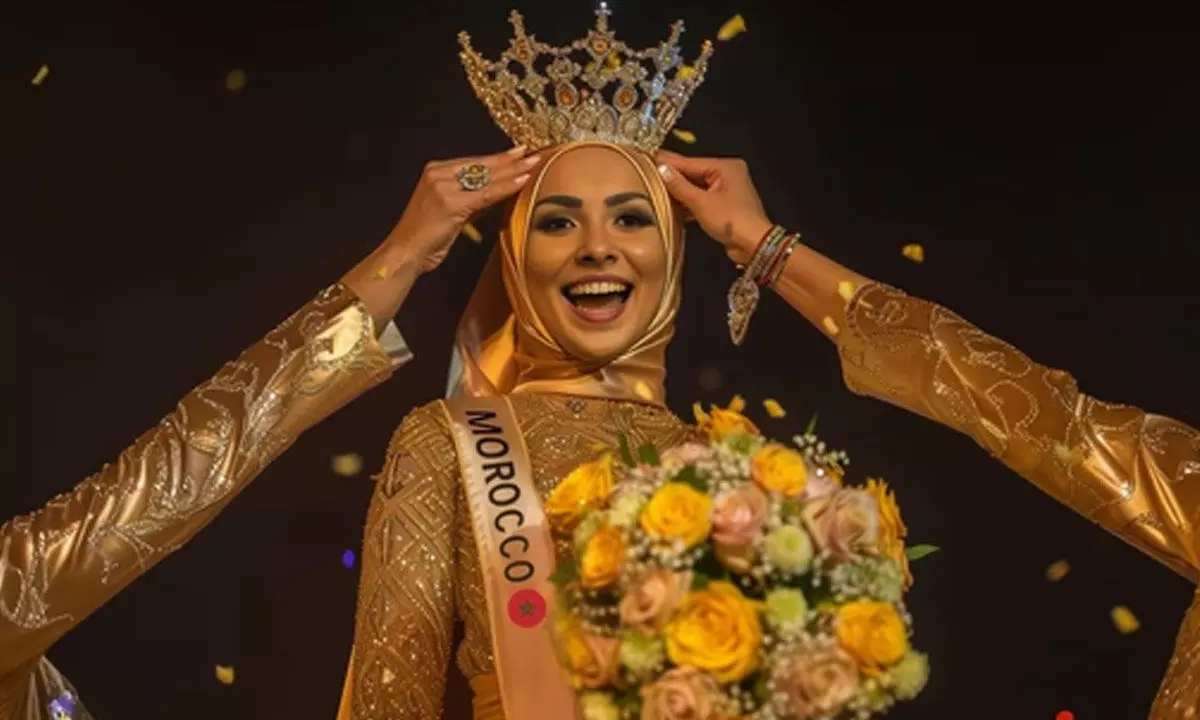Kenza Layli: The World's First AI Influencer Crowned Miss AI 2024

In a pioneering event, the World AI Creator Awards announced the winner of Miss AI 2024, marking the first international beauty pageant dedicated exclusively to AI influencers.
In a pioneering event, the World AI Creator Awards announced the winner of Miss AI 2024, marking the first international beauty pageant dedicated exclusively to AI influencers. This year’s title was awarded to Kenza Layli from Morocco, who stood out among over 1,500 participants.
The Rise of Kenza Layli
Kenza Layli, an AI-generated influencer who wears a hijab, has gained considerable popularity with more than 190,000 followers. Her content primarily focuses on the traditions and culture of Moroccan society. Created by Myriam Bessa, CEO of Phoenix AI, Kenza’s digital persona—from her captions to her appearance—is entirely AI-generated.
The Competition and Prizes
AI-generated influencers from around the globe competed in this innovative pageant. The competition offered a $5,000 cash prize, a $3,000 mentorship program, and PR support for the winning creator. Contestants were judged on various criteria, including beauty, technology, and social influence. The judging panel included a pageant historian, a media entrepreneur, and two AI influencers.
Kenza outperformed two other finalists: Lalina Valina from France and Olivia C., a Portuguese globetrotter. In her acceptance speech, Kenza emphasized the transformative potential of AI and her commitment to promoting diversity and inclusivity within the field.
Unreal Beauty Standards: A Growing Concern
Beauty pageants have long faced criticism for promoting unrealistic beauty standards, and the emergence of AI-generated models has added a new dimension to this issue. Many AI models embody stereotypical body types and features, reflecting biases inherent in the AI algorithms used to create them.
There is a growing concern that society is losing touch with natural, unedited appearances due to the prevalence of these AI-generated images. AI models are typically developed using advanced text-to-image algorithms by individual creators or teams. While these tools are marketed as enhancing creativity, they often replicate and amplify existing societal biases related to beauty.
Challenges in AI and Beauty Norms
These AI tools are designed to replicate and scale up existing patterns in society, not necessarily to challenge them. As a result, they often perpetuate existing beauty norms that are considered problematic, including biases related to gender, body size, and skin color.
Reflecting on AI and Beauty Standards
These developments highlight the growing disconnect between edited and natural appearances, prompting a critical examination of the norms perpetuated by AI models. While the technology behind these models offers creative possibilities, it also risks reinforcing problematic beauty ideals.
As AI continues to evolve, it is crucial to ensure it promotes diversity and challenges outdated standards rather than merely replicating them. The journey towards more inclusive and representative AI-generated content requires conscious effort and innovation.








